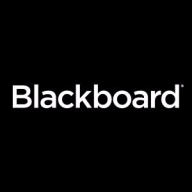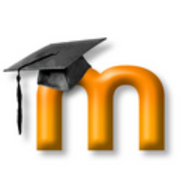

Blackboard Learning Management and Moodle are competing educational platforms. Blackboard has the upper hand in environments where enterprise stability and support are needed, while Moodle leads in flexibility and customization due to its open-source nature.
Features: Blackboard provides advanced analytics and comprehensive assessment tools and integrates seamlessly with large institutions for added stability. Moodle offers a high degree of customization with thousands of plugins and robust community support, making it ideal for tailored educational experiences. Its flexibility allows institutions to modify and extend capabilities as needed.
Room for Improvement: Blackboard could enhance its user interface to be more intuitive for educators and students and address the high cost of integration for smaller institutions. Additionally, greater transparency in pricing models could be improved. Moodle's open-source nature adds a technical demand which can be challenging for non-technical users, and its user interface may benefit from redesigning for a more modern, user-friendly experience. Continuous community updates can sometimes lead to inconsistency in feature availability.
Ease of Deployment and Customer Service: Blackboard offers diverse deployment models, including cloud-based and on-premises, with strong customer support that aids in smooth transitions. Moodle requires more technical involvement during deployment but provides extensive documentation and community forums for assistance, allowing for significant adaptability to user needs.
Pricing and ROI: Blackboard typically involves higher setup costs which may impact initial ROI, yet offers long-term scalability and support that can justify the initial outlay. Moodle’s open-source platform means lower upfront costs, enhancing initial ROI, particularly for institutions with in-house technical resources. However, ongoing maintenance and customization can affect the total cost of ownership over time.


Blackboard Learning Management System (LMS) is a comprehensive platform designed to enhance the teaching and learning experience in educational institutions. With its user-friendly interface and robust features, Blackboard LMS enables educators to create, deliver, and manage online courses effectively. Blackboard LMS is facilitates communication and collaboration among students and instructors. The platform's built-in discussion boards, chat rooms, and messaging systems enable real-time interaction and engagement, fostering a sense of community and allowing students to participate actively in the learning process.
Blackboard LMS also provides a full set of tools for content creation and management. Educators can easily upload and organize course materials, including documents, videos, and multimedia resources. The platform supports various file formats, making it convenient for instructors to deliver diverse content to their students.
Assessment and grading are simplified with Blackboard LMS. Educators can create online quizzes, assignments, and exams, and even set automated grading criteria. This saves time and effort, while also providing students with immediate feedback on their performance. The platform also offers grade book functionality, allowing instructors to track and manage student progress easily.
Blackboard LMS features robust analytics and reporting capabilities. Educators can access detailed data on student engagement, performance, and participation, enabling them to identify areas for improvement and tailor their teaching strategies accordingly. This data-driven approach enhances the effectiveness of instruction and supports personalized learning.
Blackboard LMS is also highly customizable, allowing institutions to tailor the platform to their specific needs. It integrates seamlessly with other educational tools and systems, ensuring a smooth workflow and enhancing the overall learning experience.
Blackboard Learning Management System is a powerful and versatile platform that empowers educators to deliver engaging and effective online courses. With its comprehensive features, user-friendly interface, and customizable options, Blackboard LMS is a valuable tool for educational institutions seeking to enhance their teaching and learning environment.
Moodle is an open-source LMS offering course management, community plugins, and comprehensive integrations. Its modular design supports extensive customization, making it suitable for education sectors and corporate training.
Moodle provides a robust platform for creating and managing educational content. It integrates seamlessly with tools like Zoom and Teams, enhances cheat prevention with exam question shuffling, and supports advanced customization and accessibility. While its flexibility caters to diverse educational and corporate environments, Moodle faces challenges with login issues, improving mobile functionality, and a cumbersome setup process. Efforts to enhance documentation and ensure ease of navigation are ongoing. Its integration capabilities with ERP systems and support for LTI tools further position Moodle as a valuable resource for both educators and learners.
What are Moodle’s key features?In educational and corporate industries, Moodle is implemented for exam scheduling, resource management, and online assessments. It facilitates instructor-student interactions and is adaptable for both on-premises and cloud deployments. Organizations leverage Moodle for customizing employee certifications and training programs, benefiting from its versatile access controls and management tools.
We monitor all Learning Management Systems (LMS) reviews to prevent fraudulent reviews and keep review quality high. We do not post reviews by company employees or direct competitors. We validate each review for authenticity via cross-reference with LinkedIn, and personal follow-up with the reviewer when necessary.